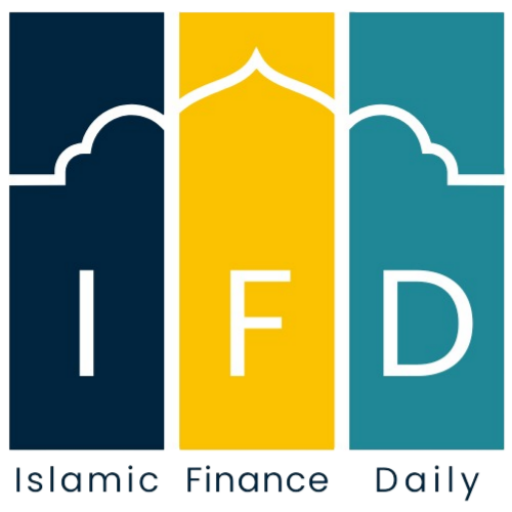Islamic finance is a dynamic and rapidly growing industry that aligns financial practices with ethical and faith-based principles. For those inspired by the values of fairness, equity, and sustainability, pursuing a career in Islamic finance can be both fulfilling and impactful.
This guide explores key steps, practical examples, and insights to help you embark on and succeed in this rewarding field.
Table of Contents
ToggleUnderstanding Islamic Finance
Islamic finance is based on Sharia principles, focusing on justice, shared risk, and the prohibition of riba (interest). Unlike conventional finance, it emphasizes equity-based transactions, ethical investments, and real economic activities.
Success in this field requires a deep understanding of Islamic contracts such as musharakah (partnership), mudarabah (profit-sharing), and ijarah (leasing). Additionally, practitioners must balance modern financial practices with adherence to Sharia guidelines, ensuring transactions are both ethical and beneficial to society.
Acquiring the Right Qualifications
1. Academic Foundations
To build a career in Islamic finance, start with a strong academic foundation. Degrees in Islamic jurisprudence (Fiqh al-Muamalat), finance, or economics are valuable. Specialized certifications, such as those offered by AAOIFI or other Islamic finance institutions, add credibility and enhance your understanding of the field.
2. Practical Learning
While theoretical knowledge is essential, practical exposure is equally important. Working in roles such as banking operations, marketing, or finance can provide invaluable insights into how Islamic financial systems function in real-world settings.
Example: Gaining hands-on experience in financial services or accountancy can help bridge the gap between theory and execution, making you better equipped to apply Islamic finance principles in practice.
The Value of Mentorship
Mentorship plays a critical role in Islamic finance. Working closely with an experienced advisor can help you navigate complex Sharia compliance requirements, understand industry dynamics, and refine your career direction.
Example: A mentor can offer guidance on both technical aspects, such as interpreting Sharia rulings, and personal development, such as building resilience and leadership skills.
Transitioning into Islamic Finance
If you’re transitioning from a conventional financial background, adapting to Islamic finance may feel challenging initially. However, expertise in areas such as accounting, auditing, or financial analysis can be highly transferable. The key lies in unlearning practices incompatible with Sharia and adopting ethical, equity-focused approaches.
Example: Professionals who shifted from conventional to Islamic finance found their previous technical skills helpful but had to realign their practices to comply with Sharia principles. This transition often required significant effort but ultimately led to a more meaningful and fulfilling career path.
Navigating Sacrifices and Challenges
Pursuing a career in Islamic finance often involves sacrifices, whether it’s leaving a lucrative job in conventional banking or taking time to gain specialized knowledge. The journey demands patience, adaptability, and unwavering commitment.
Example: Personal stories illustrate how individuals embraced career shifts despite initial financial challenges, finding greater purpose and satisfaction in aligning their work with ethical values.
Developing Essential Skills
1. Soft Skills
Interpersonal skills and leadership abilities are essential for success in Islamic finance. Building trust, effective communication, and teamwork are particularly important in this collaborative industry.
2. Resilience and Adaptability
The path to a career in Islamic finance is not without hurdles. Rejections, setbacks, or slower-than-expected progress are common but can be overcome through resilience and optimism.
Example: Staying committed despite challenges and maintaining a growth mindset often leads to breakthroughs and new opportunities in the field.
Entrepreneurial Opportunities in Islamic Finance
Beyond traditional banking roles, Islamic finance offers exciting opportunities for entrepreneurs. Starting ventures such as consultancies, educational platforms, or innovative financial services allows you to make a significant impact while addressing unmet needs in the market.Example: Many professionals have successfully transitioned into entrepreneurship, leveraging their expertise to create ethical financial solutions that benefit both individuals and communities.
The Philosophy of Baraka in Islamic Finance
One of the unique aspects of pursuing a career in Islamic finance is the opportunity to align with the concept of Baraka (blessings). Baraka represents not only material success but also spiritual fulfillment and societal impact, achieved by adhering to ethical practices and contributing positively to the community.
Example: Professionals often find that a career grounded in faith-based principles brings a sense of purpose and contentment that extends beyond financial gains.
Conclusion
Building a career in Islamic finance requires dedication, perseverance, and a willingness to embrace challenges. By acquiring the right qualifications, seeking mentorship, and staying committed to ethical values, you can make a meaningful impact in this growing industry. Whether you choose a corporate role or an entrepreneurial path, let your journey reflect the principles of fairness, equity, and faith.
Aligning your career with Islamic finance principles not only leads to professional growth but also invites Baraka into your life, offering a harmonious blend of worldly success and spiritual fulfillment.



